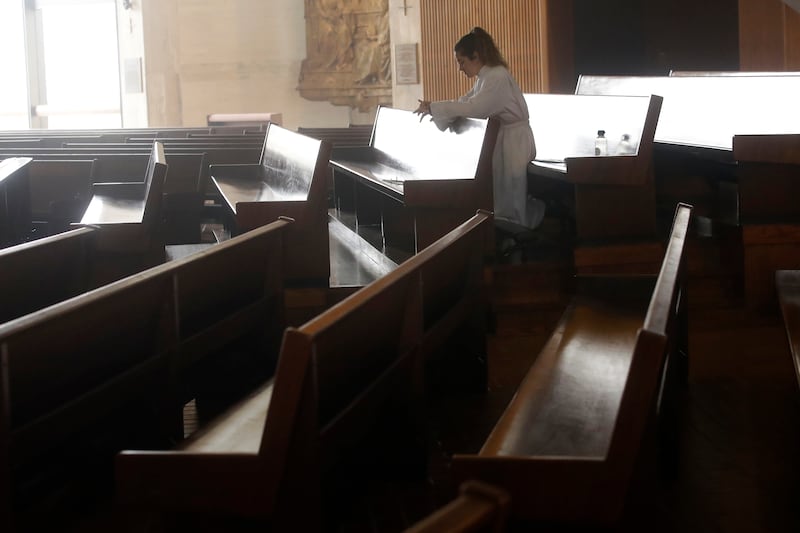For a solid majority of Americans, religion is not a hobby, not just a series of rote actions on Sunday or privately held beliefs. It is a part of who they are and the core of their characters.
That was one of the themes to emerge from this year’s Religious Freedom Index, published Tuesday by the Becket Fund for Religious Liberty.
The index — an annual survey of Americans — ought to guide governments within the United States as they deal with everything from zoning decisions to strategies to combat the pandemic. With religion being so important, it follows that governments ought to treat churches, synagogues and other houses of worship on the same level as other essential services. Forcing their closure during a pandemic, for example, could have a deleterious effect on the nation’s spiritual well-being.
Along those lines, the survey found about 79% of Americans believe reopening houses of worship should be treated at least with the same priority as opening business. Yet in some states, this equivalence was not reflected in public policies as the pandemic began to unfold.
Churches have sued governments in several states, claiming their First Amendment rights to the free exercise of religion were being infringed. At the least, many argued, churches should be treated on the same level as other essential operations.
The Beckett Index provides data that ought to suggest governments engage in a detailed and sincere accounting once the pandemic has ended. Perhaps new laws and ordinances are in order to better protect churches during future national emergencies.
But government restrictions in the wake of COVID-19 haven’t kept people from worshiping. Many faiths are meeting online. Others are using outdoor venues or conducting drive-in services. A Pew survey in March found 55% of Americans saying they were praying for an end to the pandemic, a figure we believe has increased since then.
Americans traditionally have placed a high value on religious freedom and observance, and this index offers positive evidence that this sentiment remains strong among all age groups. Despite some indications elsewhere that younger Americans are turning away from religion, the study found the notion that religion played a special role during the pandemic was shared most among both Gen Z and people over 65.
Perhaps most importantly, 60% of those surveyed in the Becket study said religion is a fundamental part of the identities of many Americans, and that laws ought to protect people accordingly.
“Concerning the question of whether religious freedom is inherently public, two of the more supportive demographic groups were Gen Z and Black respondents,” the study said.
Despite criticisms by many respondents as to the way religions have handled issues of racial injustice, the Becket Index clearly defines a nation that, despite movements toward secularism in many areas, remains deeply spiritual and religious.
These sentiments cross all political persuasions, although there was some movement toward greater support for religious freedom among Republicans than Democrats compared to last year’s report. Support for religious freedom remains strongly bipartisan, however.
The Becket Index ought to serve as a guide for public policy makers, candidates and all others in positions of leadership. Americans have long demonstrated that pluralism and protected religious liberty fosters sincere belief and allows spiritual awakening to flourish.
This has been a fundamental part of America’s strength — a beacon that beckons many believers worldwide. It stands in stark contrast to the records of nations that either coerce belief in a particular religious dogma or that discourage worship altogether. The spirit of that liberty must be preserved at all levels of government.

